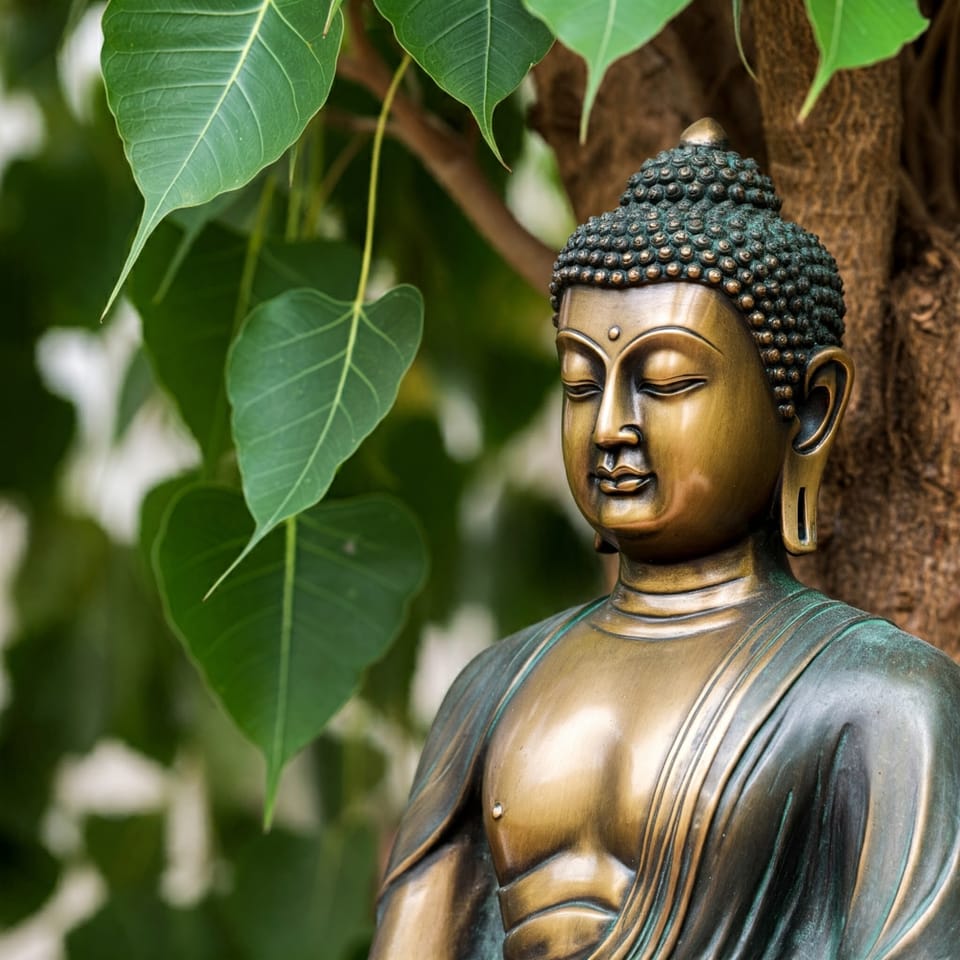Buddhism - Compassionate Mantra

ॐ मणिपद्मे हूँ
Om Mani Padme Hum
In Buddhist tradition, the mantra "ॐ मणिपद्मे हूँ" (Om Mani Padme Hum) is one of the most widely recognized and chanted mantras, particularly in Tibetan Buddhism. Associated with Avalokiteshvara, the Bodhisattva of Compassion, this mantra is a powerful tool for cultivating compassion, wisdom, and spiritual awakening. Here’s an exploration of its meaning and significance:
- "Om Mani Padme Hum" - This mantra can be broken down as follows:
- Om: A sacred syllable representing the primordial sound of the universe, symbolizing the essence of ultimate reality or consciousness, and often associated with the purity of body, speech, and mind.
- Mani: Means "jewel," symbolizing the altruistic intention to achieve enlightenment for the benefit of all beings, akin to a wish-fulfilling gem.
- Padme: Refers to "lotus," symbolizing wisdom and purity, as the lotus rises untainted from the mud, representing the blossoming of enlightenment amidst the impurities of the world.
- Hum: Represents the indivisibility of wisdom and compassion, often seen as the sound that unifies all qualities of enlightenment, sealing the mantra with a sense of determination and courage.
- Purpose of the Mantra - This mantra is used to invoke a deep sense of compassion within the practitioner’s mind, aligning oneself with the compassionate energy of Avalokiteshvara. Chanting "Om Mani Padme Hum" is believed to purify negative karma, cultivate loving-kindness, and develop the wisdom necessary for enlightenment. It is a meditation practice that helps practitioners focus on the interconnectedness of all beings, fostering a heart of compassion and a commitment to alleviate suffering.
- Spiritual Significance - The recitation of "Om Mani Padme Hum" is not just a verbal chant but a profound meditative practice that encapsulates the essence of the Buddhist path: the union of wisdom and compassion. Each syllable is said to correspond to the purification of the six realms of existence (gods, demigods, humans, animals, hungry ghosts, and hell beings), transforming negative qualities into positive ones. The mantra is also believed to bring inner peace, protect against negative influences, and create positive karma for oneself and others.